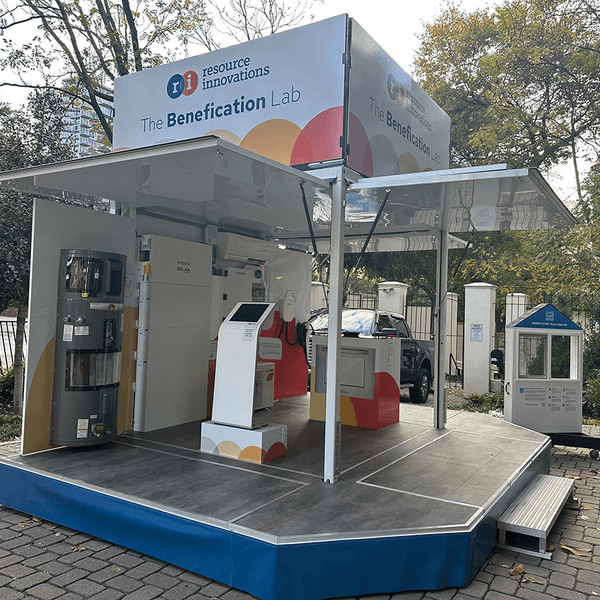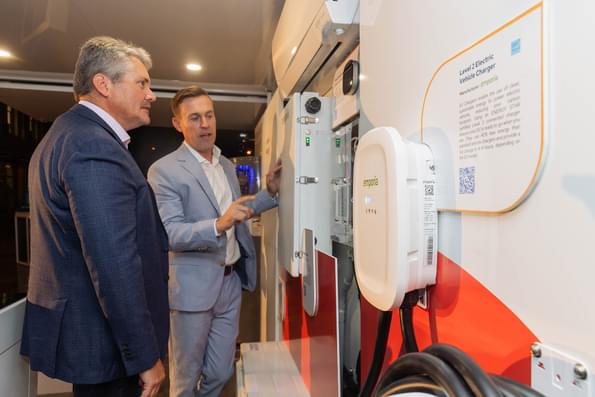Driving Into the Future: The Synergy of Transportation Electrification and Beneficial Electrification
- Written by Mark Michalski
- November 2, 2023

In the ever-evolving landscape of energy consumption, the need for utilities and energy providers to educate their customers about the benefits of electrification has never been more pressing. The concept of beneficial electrification, with its multifaceted layers, can be a complex puzzle to convey to the average consumer. However, the solution might be closer than we think: by allowing customers to experience the impact of new technologies firsthand.
From energy efficiency to demand response and electric vehicle initiatives, our Benefication Lab ("The Lab") allows for interaction with experts and technology. The Lab offers an opportunity for consumers to engage with experts while also providing a hands-on, tangible experience to connect the dots between beneficial electrification and electric vehicles—because beneficial electrification is not just about electrifying homes.
Beneficial electrification is a comprehensive approach to maximizing the benefits of electricity by using it in sectors and applications where it can be more efficient, cleaner, and cost-effective. It aims to maximize the benefits of electricity in various facets of our lives, from homes and businesses to transportation.
Transportation electrification (TE) is a pivotal component of beneficial electrification, advancing the adoption of electric vehicles (EVs), the deployment of EV charging infrastructure, and the implementation of supportive policies, like the Inflation Reduction Act.
Driving Innovation
Transportation electrification programs drive innovation in electric vehicle technology, including charging infrastructure and smart grid integration, and play a significant role in advancing the adoption of EVs. Here are some ways our tailored, agile solutions can help:
Infrastructure Development: EV charging infrastructure is essential for the growing number of electric vehicles on the roads today. Increased charging options, from home charging to public charging stations, make EV adoption more practical. RI can help support the development of EV charging infrastructure through e-mobility grant design and implementation.
Grid Optimization: Software products optimize the distribution of electricity to accommodate the increased demand from EV charging, preventing overloads and grid instability. Managed charging programs can further grid stability by incentivizing EV owners to charge during off-peak hours, reducing stress on the grid during high demand.
Fleet Electrification: Fleet electrification is becoming an increasingly attractive option for organizations looking to reduce costs, lower their environmental impact, and position themselves for a more sustainable future. Regardless of the size or type of fleet vehicles, RI understands that early involvement with local utilities is crucial for facilitating a smooth and successful transition to electric fleets and ensuring grid reliability.
Incentives and Rebates: Turnkey rebate programs simplify the process of accessing and utilizing rebates, making it more convenient for customers to implement energy-efficient technologies and EV adoption. Our flexible e-commerce platforms offer a unique way to offer rebates to customers through limited-time offer promotions on EVSE (electric vehicle supply equipment) like Level 2 chargers. Our customer service capabilities provide unsurpassed application processing and incentive fulfillment, shattering industry performance standards.

TE is a driving force behind the transition to a cleaner, more sustainable energy future. It is essential for expanding EV adoption, reducing greenhouse gas emissions, and economic opportunities like job creation.
By leveraging the advantages of electricity in various sectors, particularly transportation, we can reduce our carbon footprint and pave the way for a clean energy future. A future worth driving towards.
Related Energy Resources
Explore Resource Innovations' energy transformation insights.